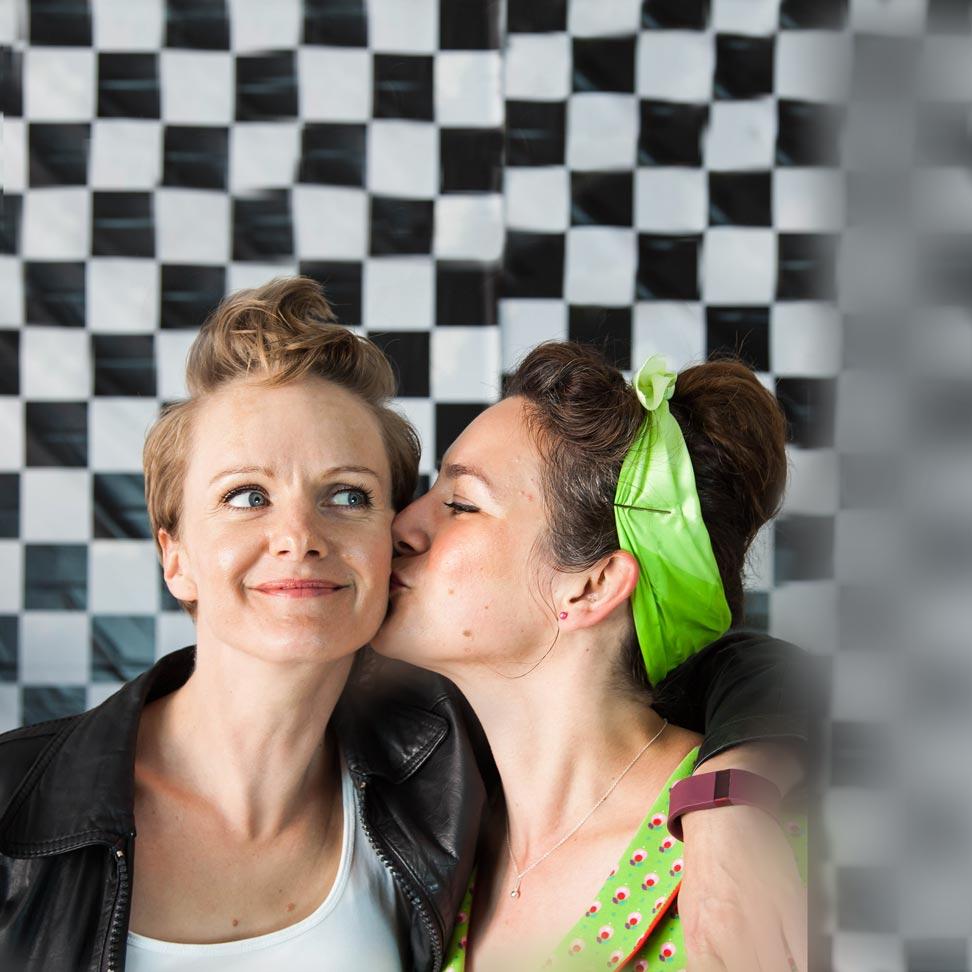Seville is Andalusia’s capital city where grandeur, history and a laid-back love of life combine to create the ideal weekend getaway. Whether you’re fascinated by Spain’s Moorish past, the dramatic and passionate art form of flamenco, or simply want to find some of the best local foodie haunts, follow our Seville guide to the city’s best attractions.
Getting there and away
The EA shuttle bus goes from right outside Seville airport into the city centre and is the cheapest option. Tickets can be bought from the driver and the journey takes around 30 minutes. Alternatively, you can get a taxi, the quickest way into the city, from outside the airport terminal for a fixed price of around €20-25.
Seville at first sight
The rooftop boardwalk of Seville’s Metropol Parasol affords panoramic views across the city © michimaya / CC BY 2.0
Seville’s historic beauty is evident from first sight, and yet the city has some surprisingly contemporary aces up its sleeve – like the sculptural Metropol Parasol from 2011. The city sits on the Guadalquivir River, its quaint streets are lined with orange trees and Sevillanos enjoy a relaxed pace of life, always willing to stop and enjoy a drink on a pretty plaza.
A flat city, Seville is best explored on foot or by bike. It has been making concerted efforts over the past decade to go green and has Europe’s fifth largest city bike scheme – the Sevici – with over 2,500 bikes available around the city. Visitors can buy a week-long subscription.
Spring, when the city’s main celebrations of Holy Week and the April Fair take place, and autumn are great times to visit. Summer can get unbearably hot as temperatures regularly top 40C.
What to do in Seville
Seville Cathedral
Seville boasts the world’s largest Gothic cathedral, Cathedral of Saint Mary of the See © piet theisohn / CC BY 2.0
The Cathedral of Saint Mary of the See, aka Seville Cathedral, is the world’s largest Gothic cathedral and emerges in all its gigantic glory as you arrive from the narrow surrounding streets.
Get the full scope of the mammoth building from the outside before heading in to explore. Avoid the inevitable long queues by buying an affordable combination ticket from the nearby church El Divino Salvador.
Don’t miss climbing the bell tower, La Giralda, the original minaret from the mosque that once stood where the cathedral is today. Rather than steps, you climb the tower up a 35-segment ramp, said to have been installed to allow the mu’addhin to ride to the top of the minaret on horseback.
Check out the tomb of Christopher Columbus. It was disputed for many years whether his remains really were in Seville or if they were in the Dominican Republic, but recent DNA analysis proved at least part of the explorer is in the cathedral.
Alcázar – Seville’s royal palace
One of the finest examples of Mudéjar architecture is Seville’s royal palace, Alcázar © trioptikmal / CC BY 2.0
The stunning Alcázar, Seville’s royal palace, is one of the best examples of Mudéjar architecture in Spain and the city’s version of Granada’s Alhambra. Mudéjar style, which flourished after the Moors left Spain, was heavily influenced by Moorish design and craftsmanship. Tickets are €9.50 and can be bought at the ticket office or online. The site has been used as a backdrop in many films and TV series, see if you recognise which. Visit early to avoid the crowds.
Flamenco
No trip to Seville is complete before you’ve watched a flamenco show © afoncubierta / CC BY 2.0
Flamenco is synonymous with Seville, and it’s a great place to discover this style of singing, guitar playing and dancing that is unique to Spain. The Museum of Flamenco is the brainchild of Seville-born dancer Cristina Hoyos, and traces the history of flamenco by looking at the different kinds of flamenco, costumes and famous dancers. The entrance fee is a bit steep but it is worth visiting to see a performance in the intimate central courtyard.
Alternatively, see a flamenco performance at a peña, a traditional flamenco social club. Torres Macarena peña is one of the city’s most famous and offers visitors a gritty, authentic take on the dance.
Plaza de España
Plaza de España is the size of five football pitches, and one of Seville’s most impressive sites © Carlos ZGZ / CC0 1.0
Built for the 1929 Ibero-American Exposition, the semi-circular Plaza de España was designed as an elaborate showcase of Spain’s technology and industry. Benches around the square depict each of Spain’s 48 provinces. Enhance the experience by renting a boat and sailing around the plaza’s circular canals.
Where to shop in Seville
Cerámica Santa Ana
Seville is known for its ceramics – the city’s street signs are even spelt out in tiles. The centre of the ceramic industry is the neighbourhood of Triana, just across the river from the old town. Cerámica Santa Ana has been in business for more than 50 years and sells reasonably-priced ceramic products, from dishes and jugs to egg cups and tiles.
Juan Foronda
You’ve visited the flamenco museum and maybe saw a show, and now you’re ready to stock up on some serious flamenco souvenirs. Juan Foronda sells hand-made flamenco dresses and accessories like fans and shawls.
La Seta Coqueta
This quirky boutique in the Alfalfa district sells clothing, accessories and jewellery made by emerging Spanish designers. It’s a great place to pick up a unique souvenir from the city for a pretty affordable price.
Where to eat in Seville
Triana
The Isabel II Bridge connects the city to the colourful Triana neighbourhood, home to some nice tapas bars
Head across the Isabel II bridge to Triana, a traditional working-class neighbourhood that today is the epicentre of Seville’s ceramic industry. The area around Calle Betis is packed with budget-friendly tapas bars, where locals spill out onto the street to enjoy the beautiful views of the Golden Tower, Torre del Oro, and Seville Cathedral across the river.
Mariatrifulca
The most glamorous views across the river from Triana are from the beautiful terrace of this mid-priced Mediterranean restaurant. Enjoy local fish dishes and tapas with a twinkling panorama across the city.
Bar Alfalfa
This cosy, standing-room-only bar specialises in different kinds of bruschetta, as well as a good range of affordable Spanish tapas dishes. The menu, including dishes like rustic aubergines and smoked scamorza cheese, is also good for vegetarians.
Mercado del Arenal
This food market, in the white and yellow colours seen throughout Seville, is a great option for a lunchtime browse. Veganitessen, a modern vegan stall, does a great fixed price lunch while you can get your fill of fresh seafood at the fish stall next door.
Bar Estrella
On a narrow little alley in the Santa Cruz neighbourhood is Bar Estrella, a buzzing tapas bar with a cute row of outdoor tables. Open since 1939, its a local favourite for a decent price.
Seville Bars
El Garlochi
This temple of kitsch is dedicated to Holy Week, Seville’s biggest annual celebration. On entering your senses are overtaken by the aroma of incense and the sight of the walls, covered in statues and photos of the Virgin Mary, Jesus and various other religious figures. It’s a fun place with its tongue firmly in cheek. Try the Body of Christ, the bar’s signature cocktail made from Cava, grenadine and whiskey.
El Rinconcillo
Seville’s most ancient bar packs centuries of history and old-world atmosphere © VIcLic / CC BY 2.0
Seville’s oldest bar opened its doors in 1670 and today gets packed with both locals and visitors eager to sample a true slice of history. Order a sherry, beer or glass of wine and enjoy some tapas like cod croquettes, tortilla or chickpeas and spinach.
Pura Vida
The rooftop bar of the Fontecruz Sevilla Seises Hotel has magical views over Seville Cathedral and is the perfect place to catch an elusive breeze during the balmy summer months. By day, there is a beach club and pool where non-hotel guests can chill out for a morning, afternoon or full-day session.
Where to stay in Seville
The Corner House
This cute guesthouse, The Corner House, situated in the boho Alameda district, is comfortable accommodation at a decent price. It has a lovely roof terrace where you can relax after a day of sightseeing.
Corral del Rey
Corral del Rey is a beautiful boutique hotel in a converted 17th-century palace, just a short walk from the cathedral in the Alfalfa district.
Looking to expand on your Spanish adventure?
- start your journey with a scenic 10-day road trip from northern Spain to Seville
- on your way, spend 3 days by the Mediterranean coast in pretty València
- and consider cruising through Portugal and loop back to Northern Spain


